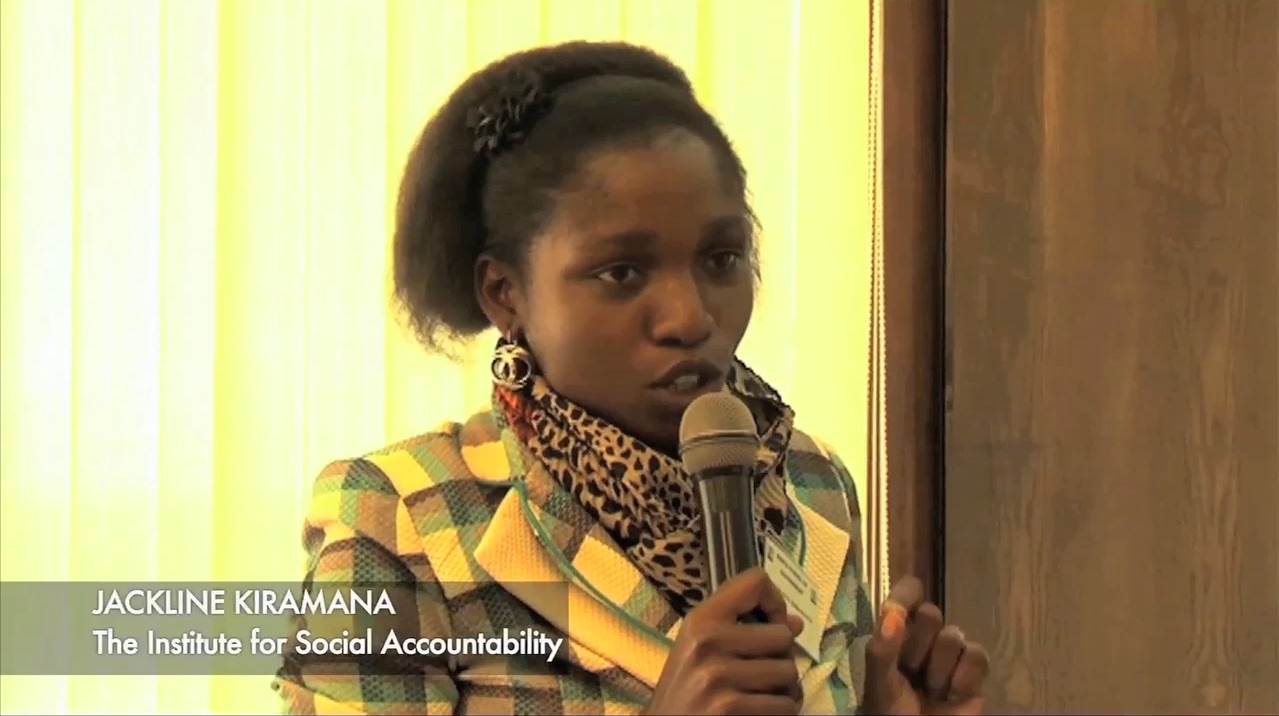NAIROBI, April 30, 2015—Kenya’s devolution, adopted following the March 2013 general elections, is expansive in scope and implementation timelines. A significant portion of public finances and responsibility for service delivery in health, agriculture, urban service and local infrastructure was rapidly devolved to 47 new county governments in less than a year, instead of over the planned three-year transition period.
This ambitious devolution shifts some key decision-making from central to county governments, creating a window of opportunity for more ‘bottom-up’ engagement, backed by a Constitution and legal framework that include provisions for government to share information, consult the public and regularly gather citizen feedback.
“Kenya has a powerful legislative landscape, providing an array of clear, pragmatic provisions and principles,” said Mwanamaka Mabruki, Principal Secretary, Ministry of Devolution and Planning. “The challenge now is on implementation, providing an enabling environment for service delivery with the necessary capacities, systems, and regulations at county level.”
Public Participation in Sub-national Government
As Kenya enters its second year of devolution, the focus is on the role of public participation in promoting accountability and enhancing local service delivery.
“Kenya’s emphasis on public participation resonates with global experience, which shows that building bottom-up participatory mechanisms is a key ingredient to effective decentralization,” said Chris Finch, team leader of the World Bank’s Kenya Accountable Devolution Program.
The government and the World Bank Group have developed the Devolution Working Paper Series, which sets out options and a framework for strengthening participation in decentralized governance and service delivery. Based on extensive research and lessons from global experiences, KSG and the WB have published six working papers covering the following areas:
- Basic requirements for public participation in the legal framework
- Lessons from past Kenya experiences with participation in local development funds
- Lessons from an initiative to strengthen participation in local Kenya health facilities
- A review of initial county efforts to enhance participation
- Practical approaches for facilitating public participation in county government.
The working paper series are part of a package of devolution support that the World Bank provides to the Kenya School of Government (KSG), including support to develop KSG training and technical assistance for county officials responsible for financial management and managing participation.
Challenges and opportunities for public participation
The working papers, although with public participation in the devolved government, have been the focus of two regional dialogues and a national forum convened by KSG. The events drew deputy county governors, executives and assembly members, as well as representatives from the Council of Governors, Ministry of Devolution and Planning, civil society and development partners. Participants agreed that both citizens and government have the responsibility to make public participation work.
The papers highlight that county governments and civil society are innovatively engaging citizens by publishing citizen-friendly budgets, holding structured planning and budgeting forums and using social media to share and receive information. However, these good practices are unique to a few counties.
Whilst there is a strong impetus towards conducting public participation, there is a gap between the provisions in the legal framework and actual practice on the ground. There are also different views of what constitutes effective participation.
“The approaches have to be practical when we go out there to implement in the sun and dust,” said Muranga County’s Deputy Governor, Augustine Gakure Monyo. “We need clear policies and guidelines for public participation so we can carry out our duties,” added Ruth Odinga, Deputy Governor of Kisumu County.
Although counties are mandated to facilitate public participation, they face challenges – such as how to engage disadvantaged communities especially in marginalized areas including arid and semi-arid regions. “Counties should consider translating public information into local languages to expand outreach,” said Geoffrey Kaituko, speaker of the Turkana County Assembly.
The working papers identify steps to strengthen participation, including developing clear guidelines and minimum standards, civic education and outreach to build awareness. Other proposed actions include counties allocating budget for public consultations and outreach, developing feedback mechanisms, and building capacity of government officials to facilitate public consultations and disseminate user-friendly information.
Building on past Kenya experience, the papers also highlight how partnerships between civil society and county governments can be a useful approach to design and roll-out participatory processes and ensure representation at the grassroots level, including marginalized groups.
“Real citizen participation is about the ability to influence outcomes,” said Wanjiru Gikonyo, head of The Institute for Social Accountability, “and it’s both beneficial to the county governments and to citizens; it’s the root of success.”
The KSG-WBG partnership is part of analytical and technical assistance provided to Kenya under the World Bank’s Kenya Accountable Devolution Program (KADP). KADP is supported by the governments of Australia, Finland, Sweden, the United Kingdom and the European Union and the World Bank Group.


